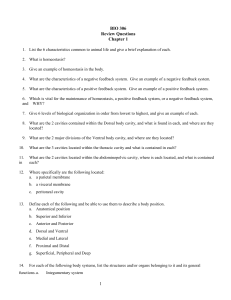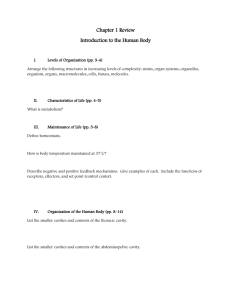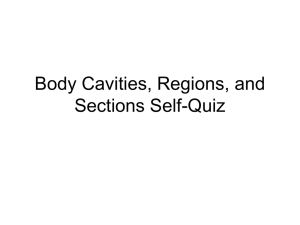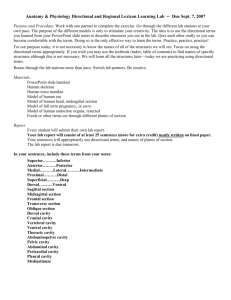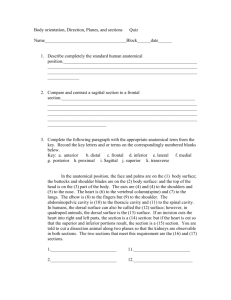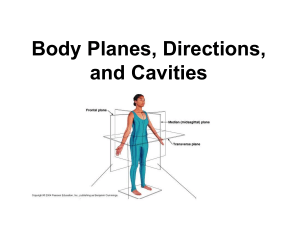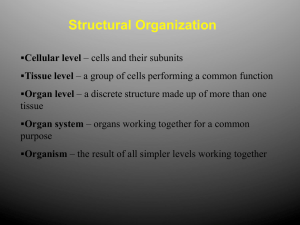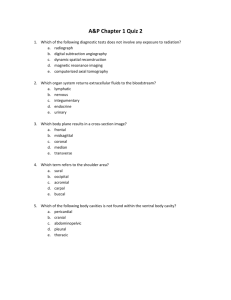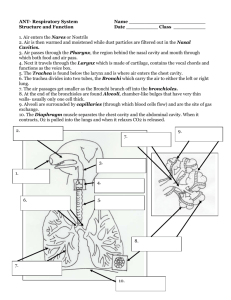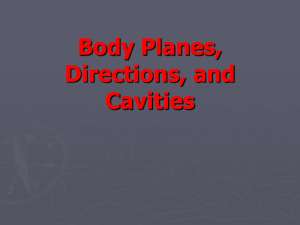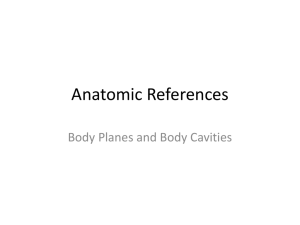Body Planes and Cavities
advertisement
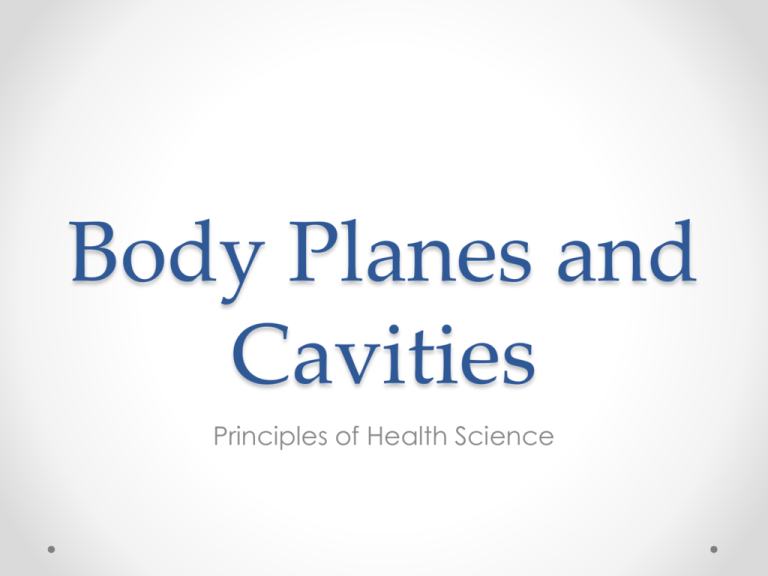
Body Planes and Cavities Principles of Health Science Standard Anatomical Position Body Planes • Imaginary lines drawn through body to separate the body into section. • Directional terms create planes • Three main body planes: Transverse, Midsagittal (median), frontal (coronal) plane Transverse Plane • Horizontal plane • Divides the body into a top half and bottom half o Directional terms associated with transverse: • Superior – body parts above • Inferior – body parts below Midsagittal (median) Plane • Divides the body into a right and left side o Directional terms associated with midsagittal: • Medial – body parts close to midline • Lateral – body parts away from the midline Frontal or Coronal Plane • Divides the body into front section and back section o Directional terms associated with frontal: • Ventral or Anterior – body parts in front of plane or in front of the body • Dorsal or Posterior – body parts in back of plane or in back of body Directional Terms Directional Terms • Extremities in relation to trunk (point of reference) o Proximal – body part closest to point of reference o Distal – body part farther or most distant from the point of reference • Example: Relationship between wrist, elbow and shoulder, with shoulder being the point of reference. o Wrist is distal to elbow o Elbow is proximal to shoulder Body Cavities • Spaces within body that contain vital organs • Two main body cavities: Dorsal Cavity and Ventral Cavity Dorsal Cavity • One long, continuous cavity located on back of body • Divided into two sections: o Cranial Cavity – contains the brain o Spinal Cavity – contains the spinal cord Ventral Cavity • Larger than dorsal cavity, separated into two cavities by the diaphragm. o Thoracic Cavity: located in the chest and contains heart, lungs and large blood vessels o Abdominal Cavity: divided into upper and lower part • Upper Abdominal Cavity – contains stomach, small intestine, most of large intestine, liver, gallbladder, pancreas and spleen Ventral Cavity, cont. - Lower Abdominal Cavity or pelvic cavity – contains urinary bladder, reproductive organs, and last part of the intestines Additional Cavities • Three small cavities o Orbital cavity: contains eyes o Nasal cavity: contains nose structures o Buccal cavity: contains mouth
